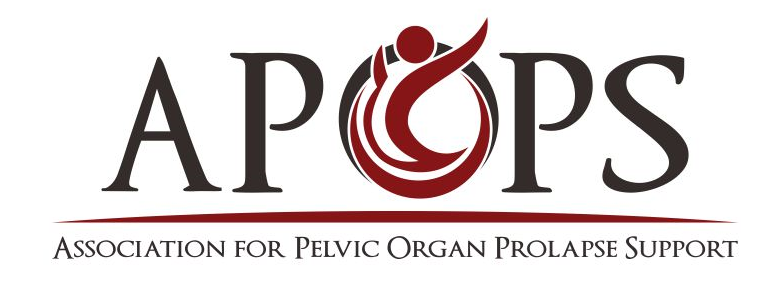Rectocele, rectal prolapse, enterocele, intussusception, what’s the distinction? Women often think rectocele and rectal prolapse are the same thing. They are not. Enterocele is sometimes undiagnosed when other types of POP are recognized. Intussusception is little known outside of those diagnosed with it.Articles about pelvic organ prolapse are incredibly vague when it comes to the difference between these conditions, and rarely mention rectal prolapse or intussusception at all. Let’s shine a bit of light to clarify these upper and lower bowel conditions.
Read moreHealth Care Tunnel Vision
Patient voice plays an integral role in the advancement of clinical practice. I engage in conversations every chance I get regarding pelvic organ prolapse; opportunities to discuss a health topic that has been shrouded in secrecy for thousands of years’ present avenues to encourage disclosure. As an advocate who guides women toward healthcare professionals for both surgical and nonsurgical treatment of POP, I encourage women to disclose symptoms and concerns that are often embarrassing to discuss. I feel strongly that we need to get past the discomfort zone and recognize that at its most basic level, pelvic organ prolapse (POP) is a health condition that is treatable, not an issue that needs to be hidden away behind closed doors.
The problem with tunnel vision is we lose sight of valuable perceptions outside the tunnel.
Read moreMedia Planet interview with Sherrie Palm for USA Today Women's Health Supplement
Sherrie Palm, the Founder and Executive Director of the Association for Pelvic Organ Prolapse Support opens up about pelvic organ prolapse (POP), a silently pervasive reality facing women.
Media Planet~Certain health conditions and symptoms of POP are often not shared during doctor visits. Why is this case?
Sherrie Palm~Despite nearly 4000 years on medical record, stigma continues to shroud pelvic organ prolapse in silence. Urinary incontinence, fecal incontinence, tissues bulging from the vagina, and painful intercourse are symptoms few women are comfortable speaking about out loud. I feel all pelvic organ prolapse symptoms need to be talked about out loud, to enable women suffering in silence to recognize they are not alone, to increase awareness of POP, and to clarify that treatment is available.
Sherrie Palm Interview with InControl Medical: Next Generation for Pelvic Floor Strength
Interviews with Key Opinion Leaders within healthcare and industry provide valuable insights into multiple aspects of the POP dynamic. As pelvic organ prolapse awareness increases and women recognize symptoms and request screening from their clinicians, the value of treatment variety will magnify. Every woman’s needs are unique; some women want surgery, some prefer non-surgical treatments. APOPS continually explores all treatment options to better inform our following.
A trip to InControl Medical (ICM) was of considerable value to better understand the pelvic floor strengthening devices this forward thinking company provides. I would like to share some information captured during my meeting with Amy Bomberg, VP of Sales Development, a refreshingly outspoken women’s pelvic health advocate.
Read morePelvic Organ Prolapse: With Your Voices, the Puzzle Pieces Fall Into Place
April will be the 6th anniversary of my journey to raise awareness of pelvic organ prolapse with the release of my book, Pelvic Organ Prolapse: The Silent Epidemic. Until I was diagnosed with pelvic organ prolapse, I was perfectly satisfied with the world I lived in, the typical work/play dynamic that the bulk of society conforms to. I was truly clueless what the years to come would bring. Like most women experiencing pelvic organ prolapse, my backdrop was “discovery upon diagnosis”.
Read morePOP SURGERY; DO WE EVER GET PAST THE FEAR OF MESH SURGERY FAILURE?
You have overcome the shock of being diagnosed with pelvic organ prolapse. You’ve moved past the frustration of exploring multiple non-surgical treatments in your quest to resolve frustrating, uncomfortable POP symptoms such as vaginal tissue bulge, incontinence, pressure, and pain. You’ve made the choice to move forward with POP mesh surgery after navigating several non-surgical treatment options. Surgery went well. You are now over a year past the surgical heal curve. You feel good, have an active lifestyle, but just can’t quite shake the fear of POP returning. You swear from time to time you feel vaginal pressure, or some type of pelvic pain, or your constipation seems to be a bit more frequent than acceptable, and your mind immediately navigates to “what if my POP is back?
Read more
